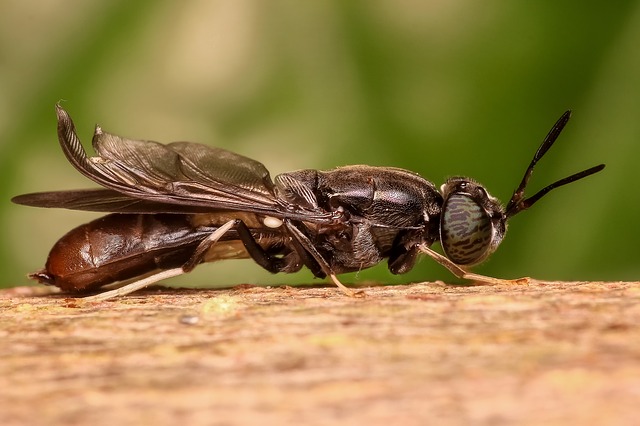January 4, 2019
UK-based AgriProtein, the world’s largest fly farming and insect technology company, announced its agreement to acquire Millibeter N.V., a Belgian insect feed company, for an undisclosed amount.
Additionally, the Innovation Fund and two other entrepreneurs have agreed to make a capital investment of EUR 1.4 million (US$1.6 million) in the company.
“We believe that Millibeter will become a major player in the circular economy in the Benelux region, following our investment and the agreed friendly takeover,” said François Cornelis, chairman of the Innovation Fund.
AgriProtein
Founded in 2008 with funding from the Gates Foundation, AgriProtein uses organic food waste as feedstock to raise black soldier flies and larvae which are then processed into high-protein animal feed for the aquaculture, livestock, and pet sectors. This circular economy strategy and the company’s role in reducing food waste saw it named as the BBC Food Chain Global Champion 2017.
In June of this year, AgriProtein announced it had raised $105 million in funding, reflecting a new high in investor commitment to the insect protein industry and its potential to disrupt the feed sector.
The round in June followed upon a previous funding round of $17.5 million secured by AgriProtein in December 2016, bringing total funding for the company to more than $120 million over the course of its life.
With the secured capital, the company expanded its R&D platforms, expanded its teams, and is building chemistry and genetic laboratories. It also has brought on senior staff with engineering and waste management backgrounds to enhance its project roll-out capacity.
Employing a factory production system developed in partnership with engineering company Christof Industries, which AgriProtein states is able to launch as many as 25 fish farms on a turnkey basis per year, AgriProtein has a pipeline target of building 100 global fly farms by 2024, and 200 by 2027, according to fishfarmingexpert.com. Of these, the company is aiming for 20 in the U.S. and Canada, and additional sites across the UK within three years.
However, moves have also been made in Africa where AgriProtein processes fly larvae into MagMeal, an organic animal feed that is 55 percent protein, and MalOil, a high lauric acid-content oil used in feeds at its industrial scale factory in South Africa.
“The company has recently expanded its R&D capability to over 45 people based in its state-of-the-art chemistry and genetics laboratories in Cape Town,” said Drew. “It has also hired senior staff from engineering and organic substrate management backgrounds to increase its project roll-out capacity.”
“The company is focusing on the aquafeed market, where demand is increasing year-on-year to satisfy increasing consumer demand for farmed fish.”
Millibeter
Predictive modeling by The World Bank estimates that by 2030, 62 percent of food fish will be provided through aquaculture, and from 2030 onward, aquaculture will dominate supply in the industry, according to the report, Fish to 2030, Prospects for Fisheries and Aquaculture. Ancillary to this, the aquafeed market, which was valued at $114 billion in 2017, is expected to grow by 250 percent in eight years to a value of $290 billion by 2026.
Amid such growth potential, the deal to acquire Millibeter broadens AgriProtein’s expansionary vision, giving it a place of strength within the wider European market.
Much like AgriProtein, Millibeter uses EU approved organic substrates such as vegetable waste to raise black soldier flies, processing them into valuable feed and pharmaceutical components.
As part of the deal, AgriProtein will fund the construction of the first commercial Millibeter factory in Belgium, where Millibeter’s team of entomologists, chemists, and engineers will form the basis of a new AgriProtein European R&D hub.
“The team at Millibeter are excited to join AgriProtein and add value to their global project roll-out plans and R&D programs,” said Johan Jacobs, CEO of Millibeter. “We have always believed in the potential of the organic nutrient recycling market in Europe. This investment is a significant vote of confidence in that industry.”
Belgium, however, is only the first step in a planned European expansion for AgriProtein, which has the construction of additional facilities on the continent.
“We are evaluating a number of sites in the region and seeking to break ground on two factories in 2019,” Jason Drew, CEO of AgriProtein, told Feed Navigator.
“There is simply not enough marine material left in the oceans to meet fishmeal demand in aquafeed, let alone in other markets,” noted Drew. “Along with algae and bacteria, new, disruptive sources of protein like our own are needed to close the feed gap and, in the process, help repair the future of the planet.”
~ Lynda Kiernan

Let GAI News inform your engagement in the agriculture sector.
GAI News provides crucial and timely news and insight to help you stay ahead of critical agricultural trends through free delivery of two weekly newsletters, Ag Investing Weekly and AgTech Intel.




